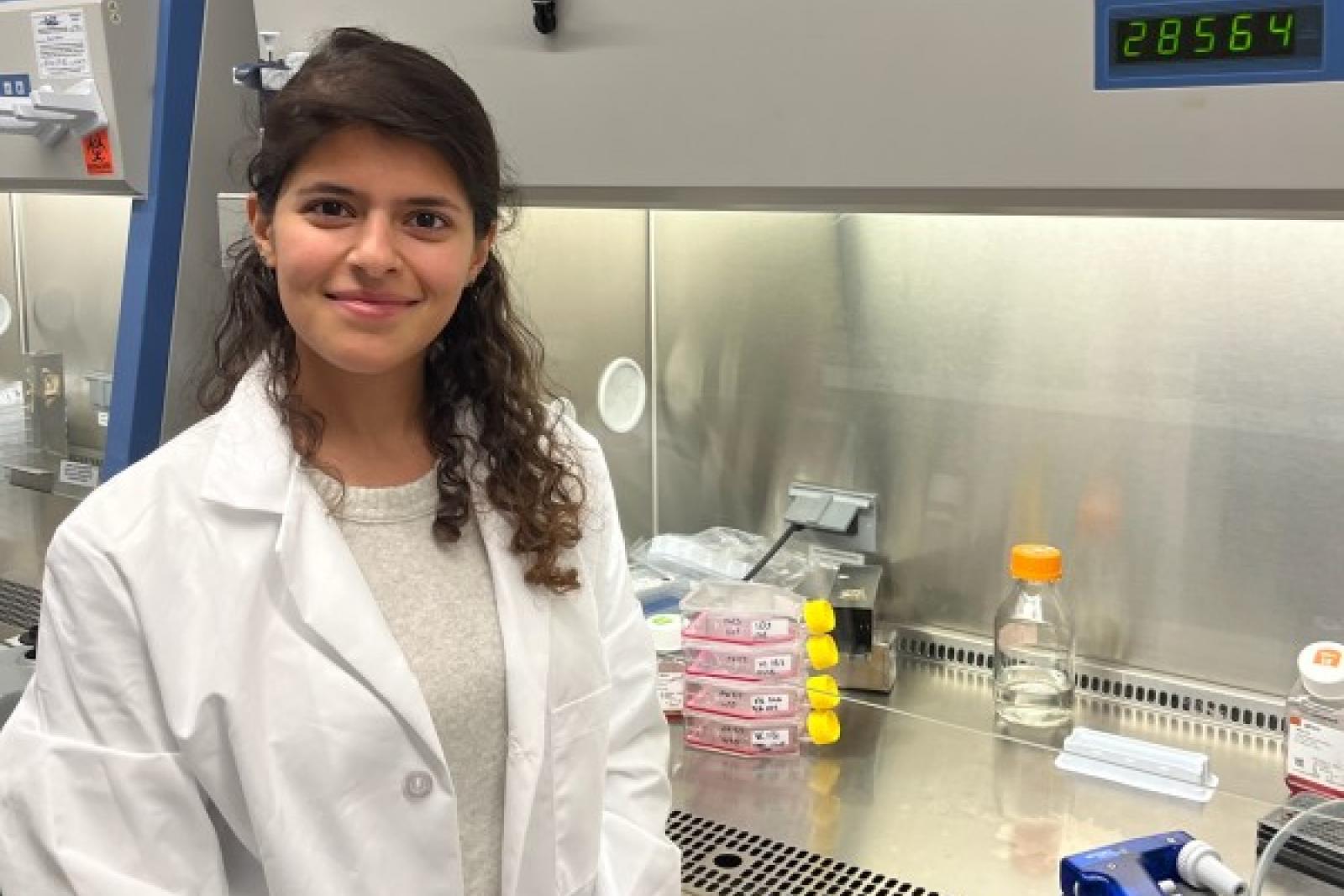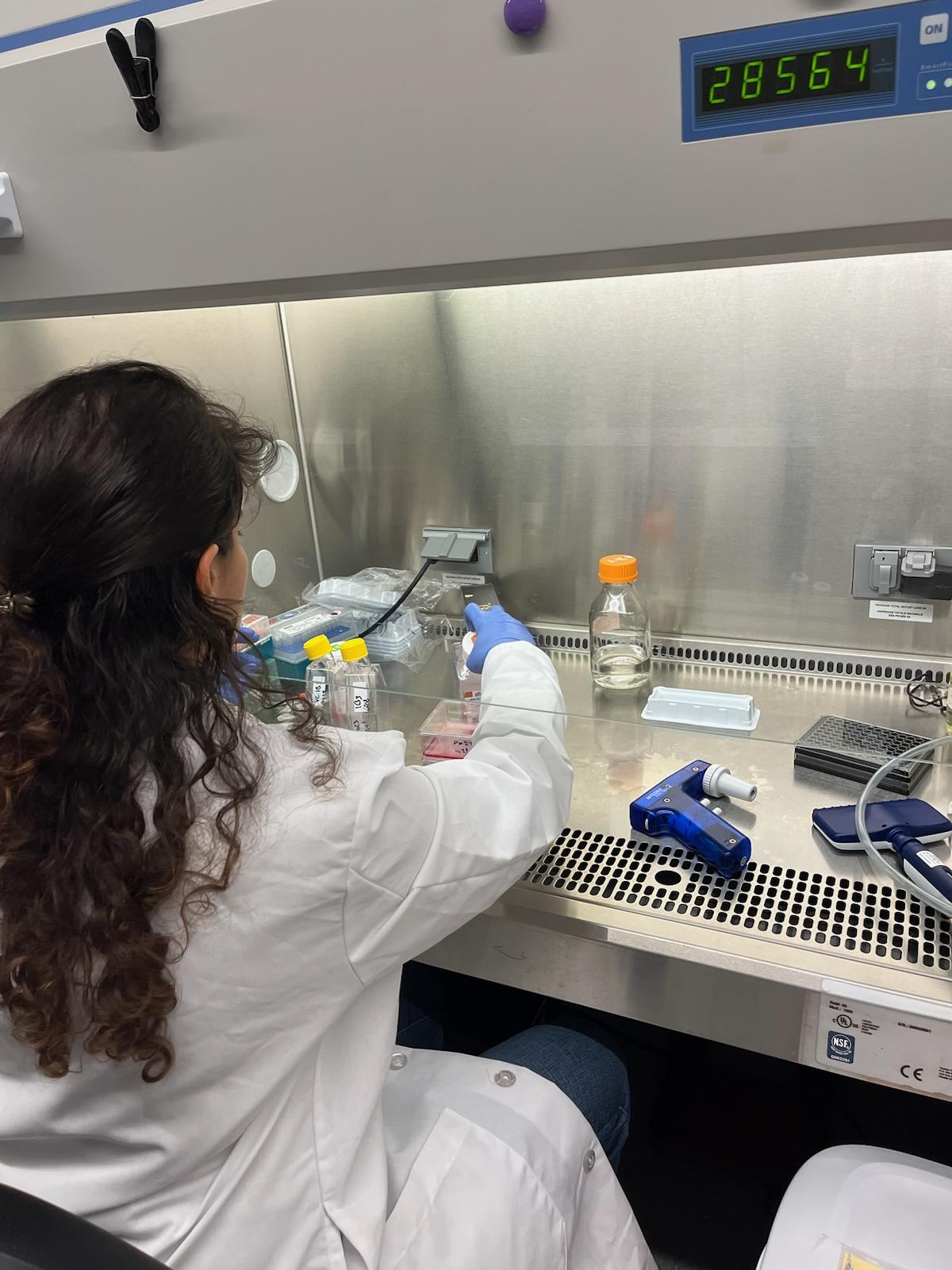PhD candidate awarded Presidential Trainee Award for research on breast cancer

Hanieh Taheri, a PhD candidate at The Ohio State University College of Pharmacy, was given the Presidential Trainee Award from the American Society for Clinical Pharmacology and Therapeutics (ASCPT) for her abstract titled, “Role of Organic Anion Transporting Polypeptide 1B (OATP1B) in Hepatic Uptake and Adverse Effects of Aromatase Inhibitors (AI).”
Each year, the Scientific Program Committee within ASCPT selects the top-scoring abstracts among clinical pharmacologists and translations scientists. The award includes a $500 prize, a commemorative certificate and registration to the ASCPT Annual Meeting.
The abstract also clarifies that when the drugs are taken, they end up in the liver and work to regulate plasma exposure, organ/tissue distribution, cellular uptake and retention, as well as toxicity – but how they get there is unknown. The study draws on previous research that suggests that hepatic organic anion-transporting polypeptides (OATP) – carriers that transport the disposition of drugs – are possibly involved in the process.

“Hani’s research is uncovering new insights into the mechanism by which AIs (anti-cancer drugs used in post-menopausal patients with Estrogen Receptor positive (ER+) breast cancer) cause arthralgia (joint stiffness where two or more bones meet),” said Alex Sparreboom, PhD, professor in the Division of Pharmaceutics and Pharmacology at the College of Pharmacy.
In her study, Taheri utilized a set of in vitro (experiments that take place outside a living organism) transporter assays and in vivo (experiments that take place inside a living organism) pharmacokinetic (activity of drugs in the body over a period of time) studies to explore the hypothesis that OATP1B-type transporter activity affects the pharmacokinetics of AIs, which in turn causes arthralgia.
In the study, the team demonstrated that AIs interact with mammalian OATP1B-type transporters and suggest that an individual’s basal hepatic OATP1B activity may have an important impact on blood levels of AIs and their associated side effect. More studies are ongoing and focus on the influence of OATP1b-type transports on systemic plasma and liver levels of AIs using transporter-deficient or humanized mouse models and on investigating the role of OATP1Bs in AI-associated arthralgia utilizing various musculoskeletal pain evaluation methods such as Von Frey test and open field activity system to monitor movement after AI treatment.
“Her studies are leading the way toward the development of new tailored strategies to eliminate this debilitating side effect that affects many women with breast cancer,” said Shuiying Hu, PhD, assistant professor in the Division of Outcomes and Translational Sciences at the College of Pharmacy.
Taheri’s work will be recognized among other awardees at the ASCPT 2023 Annual Meeting in March 2023 during the Presidential Trainee Showcase.